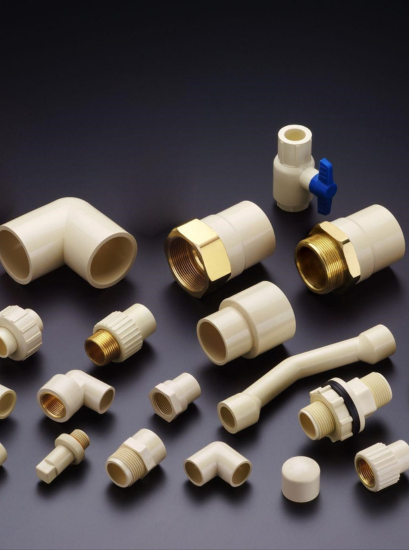
The Environmental Impact of Traditional Piping Materials
Historically, piping systems relied on materials like concrete, lead, steel, and copper. While these materials have served their purpose, their production and usage come with substantial environmental costs.
1. Concrete Pipes
-
High Carbon Footprint: Cement production is one of the largest contributors to CO? emissions, accounting for 8% of global emissions.
-
Energy-Intensive Manufacturing: Producing concrete requires 1.11 MJ/kg of energy and emits 0.159 kg of CO? per kg.
-
Durability Issues: Concrete pipes are prone to cracking and corrosion, leading to frequent replacements and increased waste.
2. Lead Pipes
-
Toxicity Risks: Lead contamination in water supplies poses severe health hazards, including neurological damage.
-
Phased Out in Modern Plumbing: Due to its harmful effects, lead is no longer a preferred material for water distribution.
3. Steel and Copper Pipes
-
High Energy Consumption: Extracting and processing metals like steel and copper is energy-intensive.
1. Steel production consumes 20.1 MJ/kg of energy and emits 1.37 kg of CO? per kg. 2.Copper mining leads to soil degradation and water pollution. -
Corrosion Issues: Metal pipes rust over time, leading to leaks, water wastage, and frequent replacements.
Given these challenges, the construction industry is shifting toward sustainable polymer-based piping solutions that offer durability, efficiency, and a lower environmental footprint.
WateroPipes: Pioneering Sustainable Piping Solutions
At WateroPipes, sustainability is at the core of our manufacturing philosophy. We are dedicated to producing high-quality, eco-friendly piping systems that meet global green building standards.
How WateroPipes Promotes Sustainability
1. Eco-Conscious Manufacturing
-
Our production processes prioritize low energy consumption and reduced carbon emissions.
-
We use non-toxic, lead-free materials to ensure safe drinking water delivery.
2. Durable & Low-Maintenance Products
-
Our pipes are designed for longevity, reducing the need for frequent replacements.
-
Leak-proof technology minimizes water wastage, supporting efficient water management.
3. Compliance with Green Building Certifications
-
ISI, NSF, and ISO 14001 certified, ensuring adherence to environmental safety standards.
-
LEED-compliant products that contribute to sustainable construction credits.
4. Water-Efficient Solutions
-
HDPE pipes for agriculture optimize irrigation, reducing water loss.
-
uPVC drainage systems enhance urban wastewater management, preventing contamination.
By choosing WateroPipes, builders and developers contribute to a greener future while benefiting from high-performance, cost-effective piping solutions.




